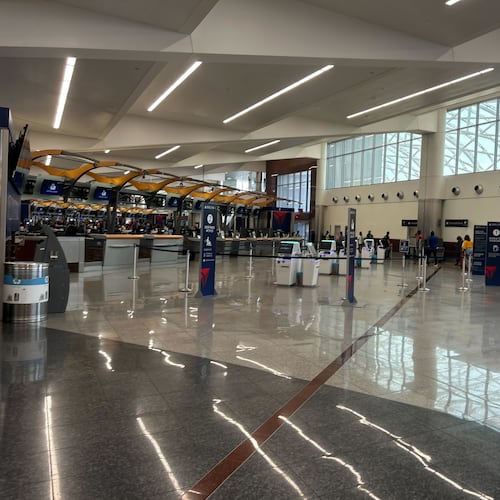U.S. Agriculture Secretary Tom Vilsack remembers his adoptive mother struggling with alcohol and prescription drug addictions when he was growing up. She tried to commit suicide a couple of times. And he nearly flunked out of high school as his parents separated.
The former Iowa governor and former Democratic presidential candidate said his mother eventually got help from a 30-day treatment program and never drank again for the rest of her life. Vilsack’s grades shot up and he landed on the honor roll when his parents reunited. The experience, he said, taught him drug and alcohol addictions are diseases — not character flaws — that require responses from whole communities.
Vilsack shared his personal story at the National Rx Drug Abuse & Heroin Summit in Atlanta Monday. President Barack Obama, who is scheduled to headline a panel discussion here Tuesday, appointed Vilsack this year to lead his “Rural America Opioid Initiative.”
“I implore all of us as we look at this issue of addiction,” Vilsack told a packed ballroom at the summit, which was expected to attract 1,900 researchers, law enforcement officers and others, “that we don’t forget to avoid judging those who are challenged by it, that we always believe in them, always provide hope for them and do everything we possibly can to make sure their life is headed in the right direction.”
Vilsack’s interagency initiative is aimed at fighting a prescription painkiller and heroin overdose epidemic that killed more than 28,000 people in 2014, more than any year on record. At least half of those deaths involved prescription drugs.
Georgia is among 14 states that have seen statistically significant increases in the rate of drug overdose deaths, according to the U.S. Centers of Disease Control and Prevention. In 2014, 1,206 people died from such overdoses in the Peach State, up from 1,098 the year before, a 9.8 percent increase. Georgia’s death rate per 100,000 residents rose by 10.2, from 10.8 to 11.9 during the same timeframe.
Also Monday, the Obama administration released 2014 statistics showing there were 159,000 uninsured Georgians who had mental illnesses or substance abuse disorders and who had incomes that could qualify them for Medicaid, if the state would expand the program under the Affordable Care Act. Although the federal government would cover most of the cost of expansion, Gov. Nathan Deal has rejected it, saying Medicaid is already overtaxed and the state can’t afford to make it even bigger.
At the summit Monday, Vilsack announced a series of town hall meetings and the availability of $1.4 million in grants. They are aimed at collecting information about the extent of the problem and finding ways to combat it. Vilsack cited numerous causes: poverty, workplace injuries and a sharp rise in doctors prescribing painkillers. Among the possible solutions, he said, are increased training for doctors for prescribing pain medication, providing emergency workers with an antidote to heroin overdoses, and expanding opportunities for addicts to get medication-assisted treatment.
Vilsack’s mother died years ago after struggling with lung and brain cancer. He recalled an eerie moment visiting her not long before she passed away. Her personality, he said, had changed. Something happened in her brain that triggered the anger and meanness she had when she was drinking.
“At the time, I was an adult and I can tell you that I was actually physically scared,” he said, “just because it brought back memories of the mother who was violent when she was drinking and a mother who was angry and a mother who was just… not a nice person. It sort of underscored to me the need to be very careful about how judgmental you are about people who are struggling with this.”
Vilsack still feels regret today for judging her, for thinking she had a “character flaw.” He thought she could decide not to drink. And he didn’t understand why she wasn’t following through.
“But I have come to learn it is not that simple,” he said. “It is very complex and it is a disease. And if you basically try to suggest it is just a character flaw, you are setting people up I think for failure because you are essentially saying, ‘You can do this on your own. You don’t need help. You don’t need medication-assisted treatment. All you need is a little willpower.’”
“Well, it is just not that simple,” he continued. “And I think it is important for us to understand the complexity of this in addition to understanding the devastation of it so that we are in a position to be comprehensive in our response to what works and what doesn’t work.”
About the Author
Keep Reading
The Latest
Featured

